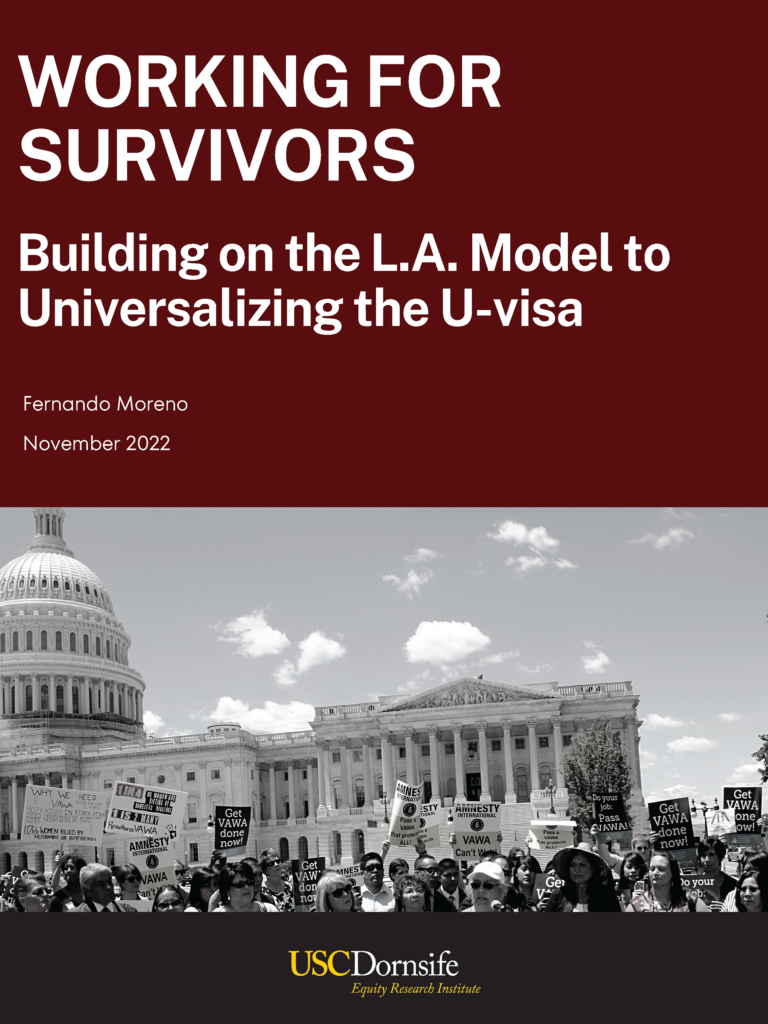
November 2022
By Fernando Moreno
The U-visa is a non-immigrant visa provided to non-citizens and their families who have been victims to violent and exploitative crimes, such as domestic violence, sexual assault, felonious assault, and other “qualifying crimes” outlined by the United States Citizenship and Immigration Services (USCIS).
The U-visa was created by Congress in 2000 as part of the Victims of Trafficking and Violence Protection Act, to assist law-enforcement agencies in prosecuting crimes committed against individuals who might not come forward because of their legal status. The visa allows recipients to apply for a work permit, apply for public benefits, and eventually a pathway to citizenship. Further, the U-visa is increasingly becoming an important avenue towards immigration relief, especially for disadvantaged and marginalized immigrants who are more exposed to violence in American society.
This report highlights the role that local advocacy infrastructure plays in developing progressive policies statewide, the role this infrastructure makes in shaping U-visa accessibility in the county today, and highlights how local bureaucratic openness to working on the U-visa issue cleared the way for Los Angeles becoming the U-visa capital of the country. In this geographic roulette, Los Angeles is the exception rather than the norm, therefore, critically examining how this came to be (and the barriers) could clear a way for other jurisdictions to improve access for immigrant survivors of crime across the country.



